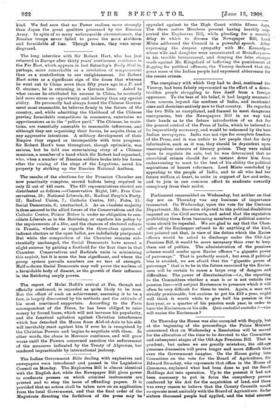The long interview with Sir Robert Hart, who has just
returned to Europe after thirty years' continuous residence in the Far East, which appears in last Saturday's Doily Moil is, Perhaps, more remarkable as a revelation of temperament than as a contribution to our enlightenment. Sir Robert Hart notes as a significant sign of the times that whereas he went out to China more than fifty years ago in a P. and O. steamer, he ie returning in a German liner. Asked to what causes be attributed his success in China, he modestly laid more stress on opportunity and industry than any special ability. He personally had always found the Chinese Govern- ment most reasonable, he believes firmly in the future of the country, and, while admitting the likelihood of the Chinese proving formidable competitors in commerce, entertains no apprehensions as to the "yellow peril." The Chinese, he main- tains, are essentially amenable to reasonable influences, and although they are organising their forces, he acquits them of any aggressive intentions. A military development of their Empire they regard as incompatible with true progress. Sir Robert Hart's tone throughout, though optimistic, was serious, but he told one entertaining story of a Chinese musician, a member of a band which Sir Robert had organised, who, when a number of Russian soldiers broke into his house after the raising of the siege of the Legations, saved his property by striking up the Russian National Anthem.






































 Previous page
Previous page